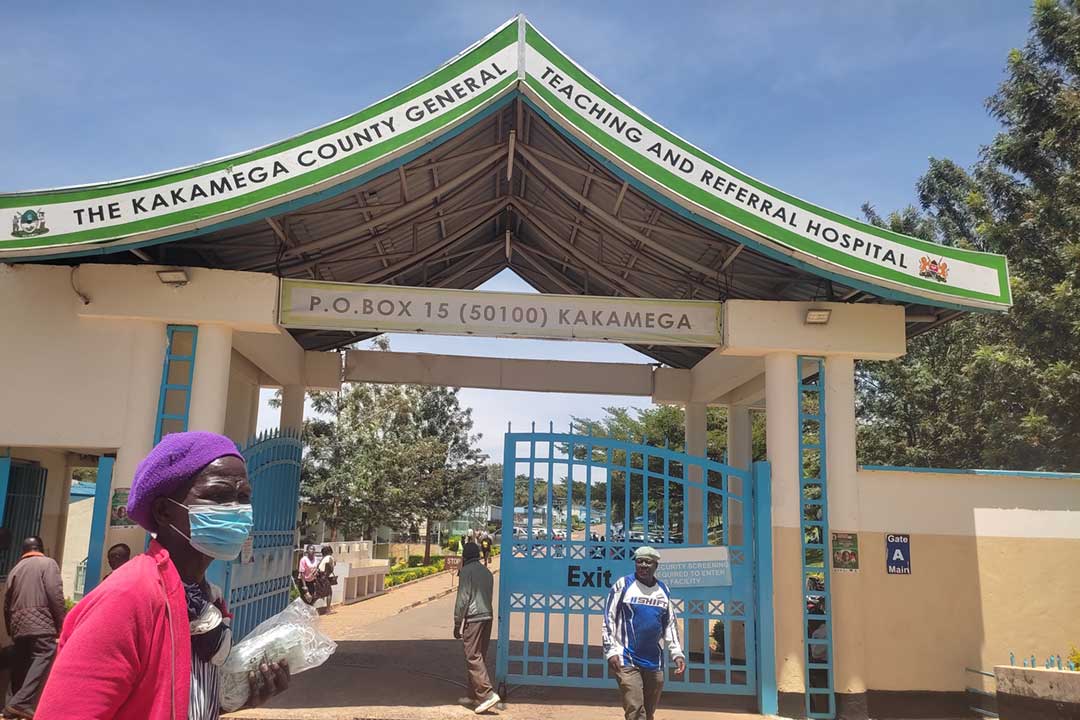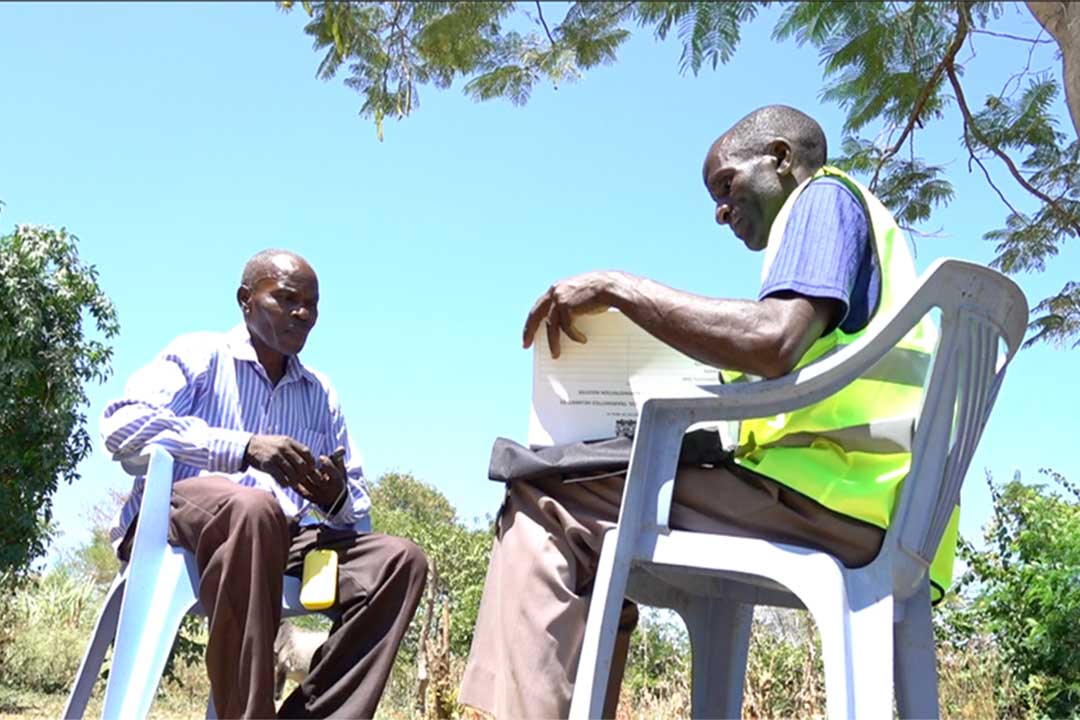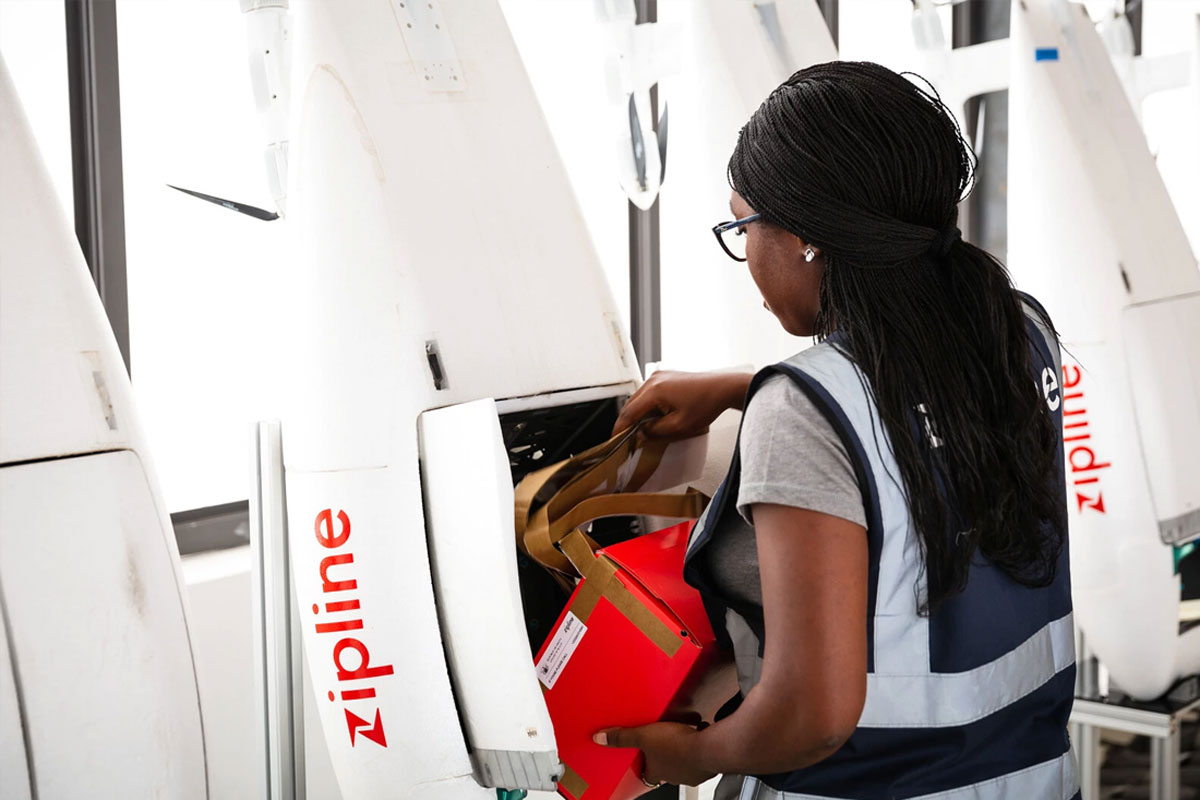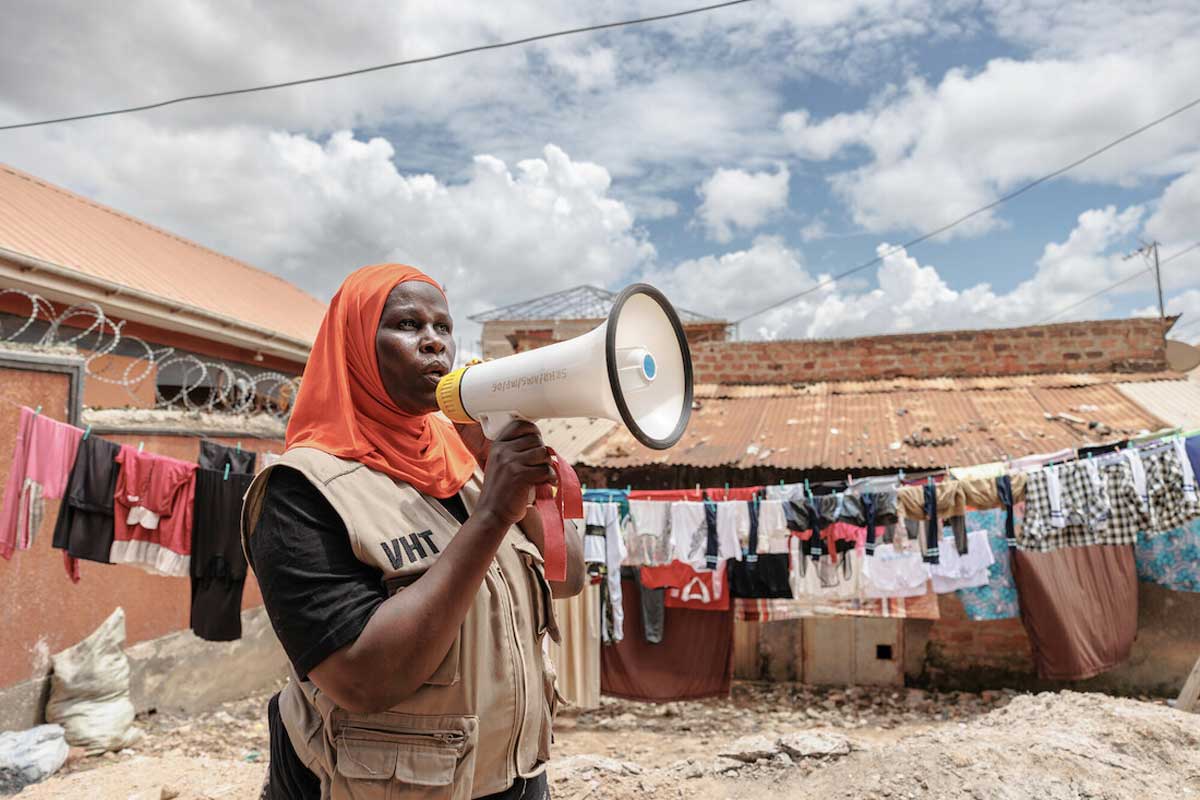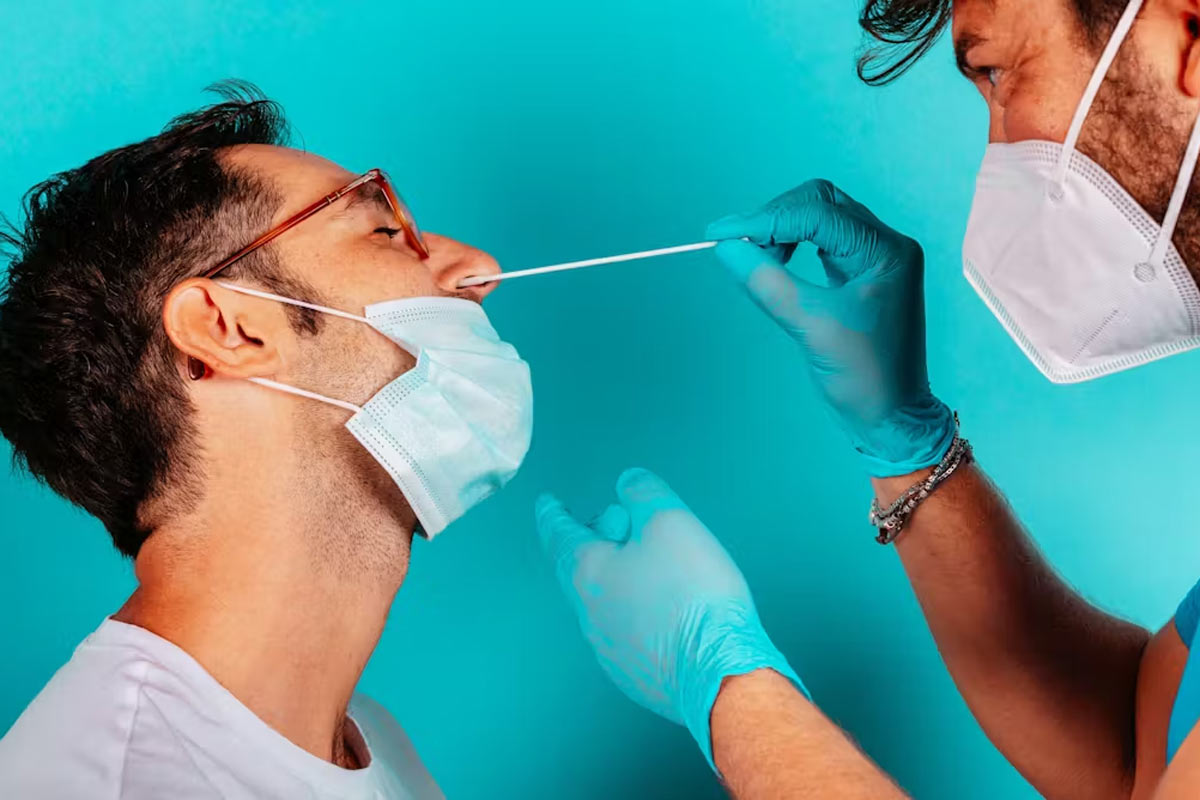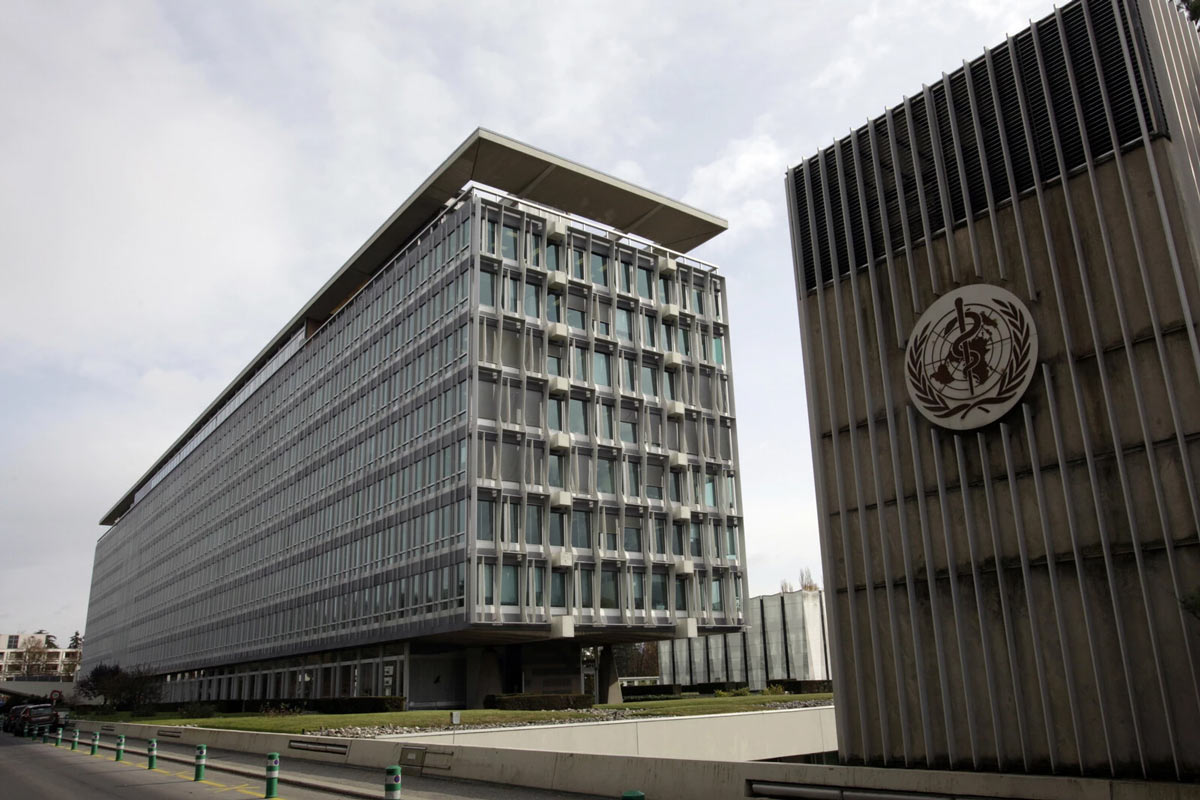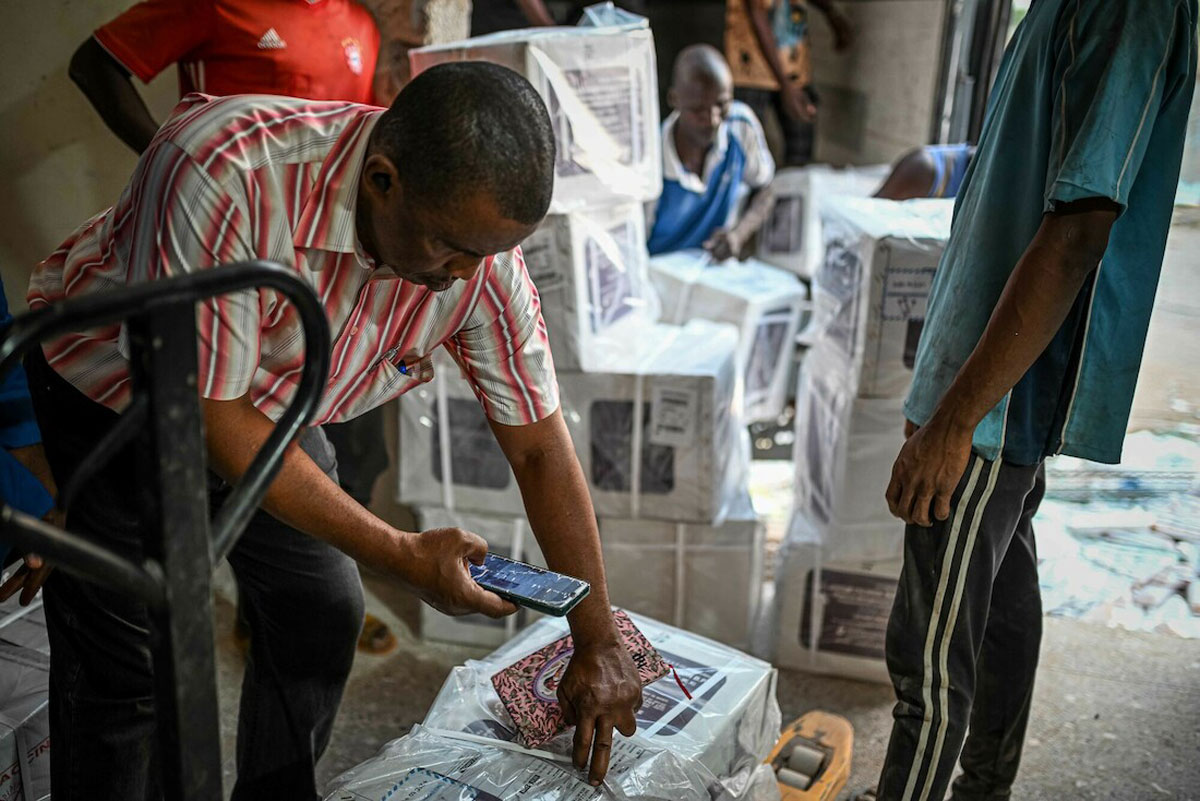“A great relief to us”: Vaccines reach nomad families in Kenya
Locals say that without regular visits from the health-facility-on-wheels, their children might have missed out on life-saving vaccinations.
- 10 July 2023
- 6 min read
- by Angeline Anyango
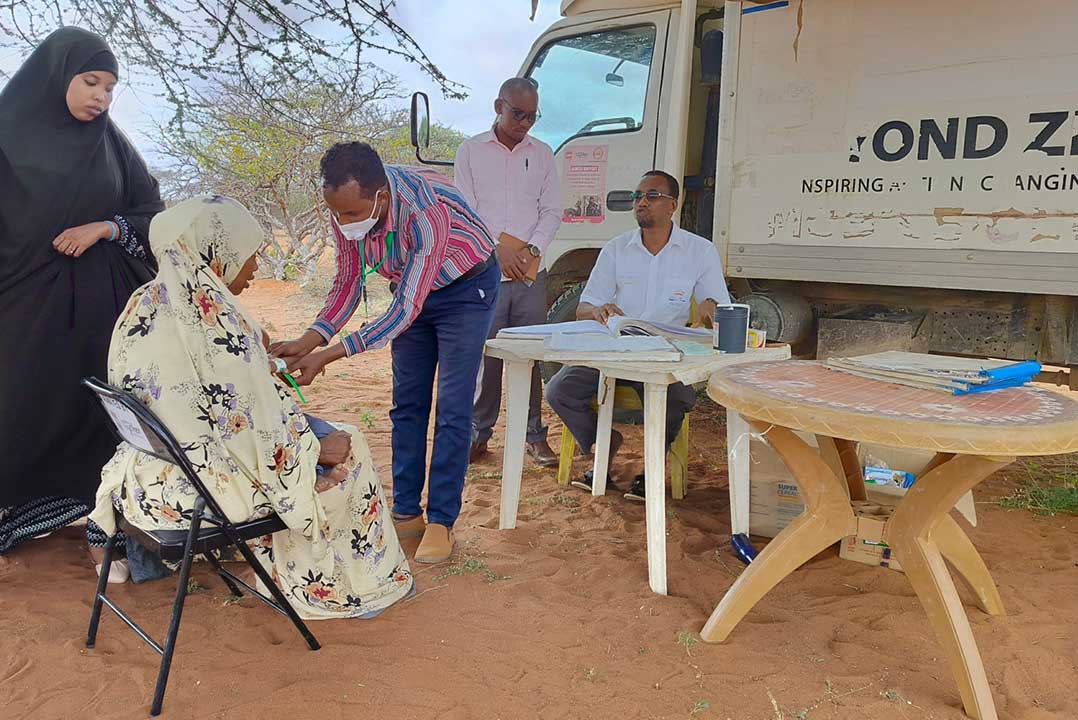
It's a sweltering, humid Monday morning in northern Kenya, and the "Beyond Zero" mobile clinic truck rumbles along dusty roads towards Wajir East Sub County.
The truck is white, and presents a sharp contrast against the clouds of terracotta-coloured dust. Inside, the environment is clean and serene.
The clinic-on-wheels is staffed with medics and well-stocked with medical supplies, including nutrient-rich foodstuffs. Cool-boxes with sky-blue straps labelled "vaccines" stack in one corner: these hold both vaccines and anti-malarial drugs.
“The heath facility is quite a distance from my home. I cannot walk due to my old age, it also takes hours to get to the facility and many times we are forced to secure a room to spend a night in the city before travelling back the following day.”
– Farah Kalmoy
This vehicle is special, but not unique. Beyond Zero, founded by former first lady Margaret Kenyatta in 2013, has since then raised funds to purchase and donate 52 mobile clinics to underserved parts of the country.
Deep in Wajir East, the truck makes a stop at Abdiaziz village. Under a tree, sheltering from the burning sun, dozens of residents await its arrival.
Seated in the small crowd is 53-year-old Farah Kalmoy, who has brought in his nine-month old son for the measles vaccine.
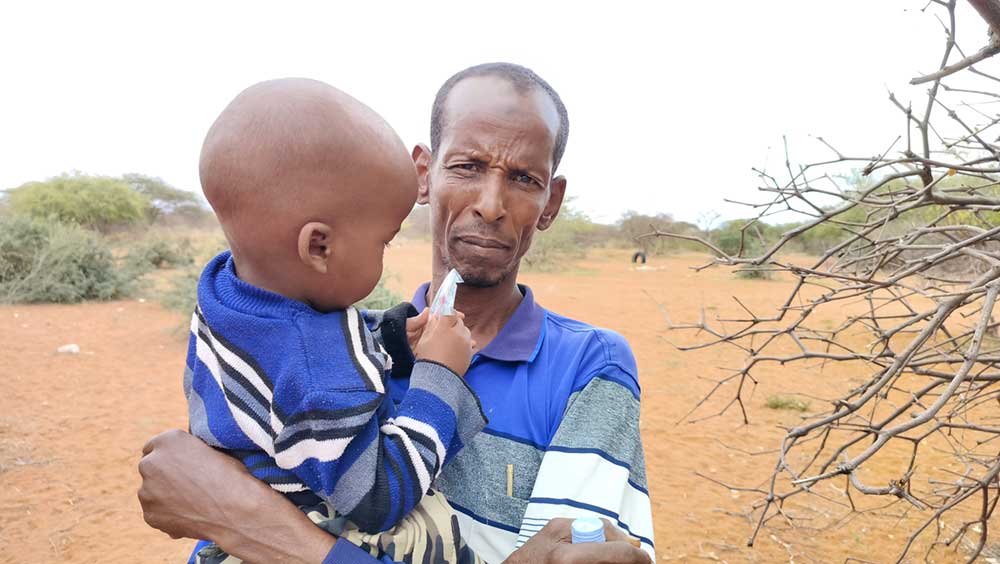
Credit:,Angeline Anyango
"My home is six kilometres away from Wajir County Referral Hospital, which is the nearest health centre where I can access the medical services," says Kalmoy. To get to the facility, he needs at least Sh2400 (17$), he says.
Most of the locals are nomads relying solely on their domestic animals for their livelihoods. Kalmoy, however, says he lost most of his goats following the prolonged dry spell that spanned the end of last year and the early part of this one.
If not for the mobile hospital, he admits, his last-born son would never have received his postnatal health care, including vaccination.
Kalmoy says that since the mobile clinics launched in Wajir in 2015, he rarely visits the Wajir Referral Hospital.
"The heath facility is quite a distance from my home. I cannot walk due to my old age, it also takes hours to get to the facility and many times we are forced to secure a room to spend a night in the city before travelling back the following day," he says.
Even for younger locals, the walk is long under the hot sun. Only acacia trees offer spotty shade along the way.
According to Bishar Abdullahi, Officer in Charge of the Beyond Zero mobile clinic in Wajir East Sub County, the nomadic lives of many Wajir families make them especially predisposed to missing the scheduled early childhood vaccinations.
"You may find a family here, but they may be gone before our next visit. Their availability depends on water and grass for the animals," says Abdullahi.
Also attending the clinic today is 32-year-old Nuria Barre Birik. She explains that she has eight children who have all been vaccinated.
With the last three, she attended antenatal care (ANC) clinics at the Abdiaziz mobile clinic site.
"Currently, it is very risky for women and children to move around due to fear of being attacked and raped on the way," she explains.
“You may find a family here, but they may be gone before our next visit. Their availability depends on water and grass for the animals.”
– Bishar Abdullahi, Officer in Charge of the Beyond Zero mobile clinic in Wajir East Sub County
If not for the mobile clinic, all three of her younger children would have missed out on their early childhood immunisation.
"The mobile clinics are a great relief to us, especially women. The services are brought closer to us and we also have time to attend to our house chores," she says.
Have you read?
Apart from the antenatal and postnatal care, the health experts working in the mobile clinics also offer testing for malaria and malnutrition among other conditions.
Inside the truck is a bed where a patient seeking health services can be examined, and a small laboratory room where tests are run.
Once diagnosed, a patient receives drugs from the mobile clinic pharmacy. People in critical condition are referred to the nearest hospital.
"Basically, the mobile clinic can be compared to the level two dispensary. The services we offer range from antenatal clinics, immunisations, to nutritional services for mothers and children. We also conduct health surveillance, health education and referrals," says Abdullahi.
The mobile clinic usually attends to at least 20 individuals per day says Abdullahi, adding that they aim to immunise eight children per visit.
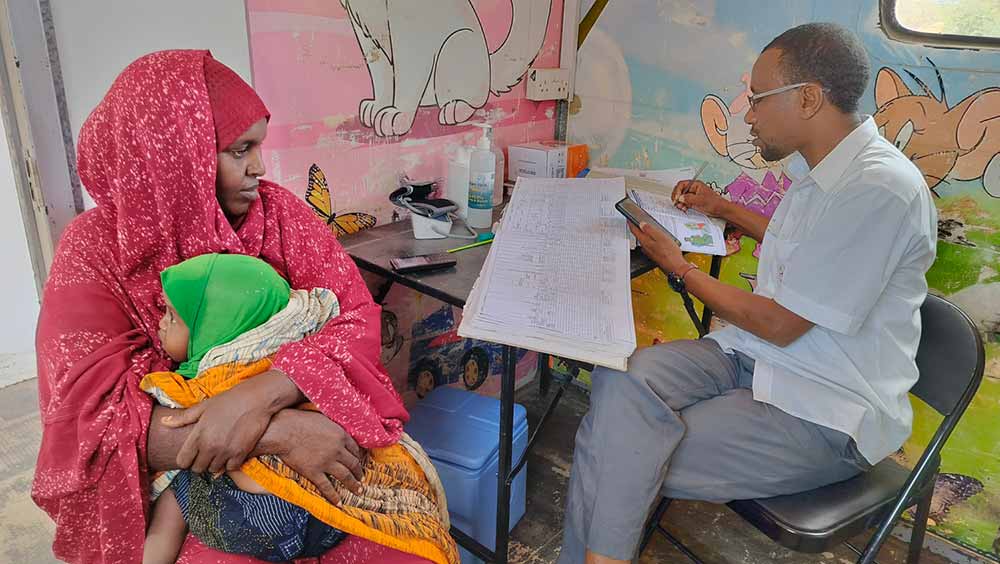
Credit: Angeline Anyango
He revealed that the clinics are organised every week in seven sites spread across the sub county, allowing a vast area to enjoy the advantage of medical care on hand.
"At the beginning of every week, we create a moving plan, and share it with the office and partners who assist us. This week for instance, we will be running from Monday to Sunday, go for a two-day break, then start again," says Abdullahi.
Since the launch of the clinics, Abullahi says that there has been a great increase in the vaccine uptake.
At every site, health workers are assigned a population of 2,480, who are further divided into various target groups. For vaccinations, the health workers are assigned 97 children per site. Last year, 72 children received their vaccines at the mobile clinic here.
"The mobile clinics are a great relief to us, especially women."
– Nuria Barre Birik
"The mobile clinics have brought down the number of children who miss out on immunisation and other services. The delivery of the services highly depends on the mobile clinics," says Deqa Mohamed, Wajir East Sub County Health Coordinator.
She says that so far, the mobile clinic has been adopted in Wajir South and East sub counties. In some places, the county has established nomadic clinics.
Mohammed says that the truck usually gets its supplies from either Garissa, Nairobi or Wajir Referral hospital. The vaccines are then placed in coolers and transported to residents located within a nine mile radius. The remainder is then ferried back to the health facility in the evening.
The furthest point the mobile clinic has ever moved to is 17 kilometers from pick-up, but the area is no longer accessible due to growing insecurity.
The county works with community health workers who help to mobilise parents of children below five years to receive their scheduled immunisations.
"It is high time countries adopt the idea of mobile clinics in order to reach those who cannot travel to the health facilities for medical care," says Mohammed.
The county Health Executive Habiba Maalim says 60 percent of the total population are nomadic while the county is now targeting to have 80 percent of children below five years vaccinated.
